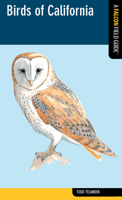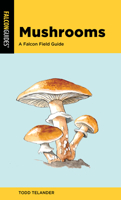Birds of the Rocky Mountains (Falcon Pocket Guide)
Select Format
Select Condition 
Book Overview
Falcon Pocket Guide: Birds of the Rocky Mountains is a field guide to more than 250 of the most common and sought-after bird species in the region. Anatomically correct illustrations and detailed descriptions about each bird's prominent physical attributes and natural habitat make it easy to identify birds in your backyard, favorite parks, and wildlife areas. Informative and beautiful to peruse, this is the essential resource when you're out in the field. This description may be from another edition of this product.
Format:Mass Market Paperback
Language:English
ISBN:0451527453
ISBN13:9780451527455
Release Date:October 1999
Publisher:Signet Classics
Length:13 Pages
Weight:0.57 lbs.
Dimensions:0.9" x 4.2" x 6.9"
Age Range:1 year and up
Grade Range:Grades 1 to 6
You Might Also Enjoy
Customer Reviews
15 customer ratings | 5 reviews
There are currently no reviews. Be the first to review this work.








































